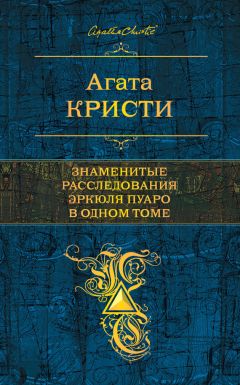Agatha Christie - Английский язык с Агатой Кристи. Убийства по алфавиту
"It's not much good looking for motives at this stage, Mr. Clarke," said Inspector Crome (не стоит: «это есть не много хорошего» искать мотивы на этой ступени, мистер Кларк). "That's a matter for an alienist (это дело для психиатра) — though I may say (хотя я могу сказать) that I've had a certain experience of criminal lunacy (что у меня есть определенный опыт /работы/ с криминальным безумием) and that the motives are usually grossly inadequate (и что мотивы являются обычно сильно неадекватными). There is a desire to assert one's personality (бывает желание утвердить личность), to make a splash in the public eye (устроить сенсацию на публике; splash — брызганье; всплеск, плеск; брызги; разг. показной, внешний эффект; шумиха, шумная реклама; сенсация) — in fact (фактически), to be a somebody instead of a nonentity (быть кем-то вместо /того, чтобы быть/ никем; entity — бытие; суть, существо)."
"Is that true, M. Poirot (это правда, мсье Пуаро)?"
Clarke seemed incredulous (Кларк казался скептически /настроенным/; credulous — доверчивый, легковерный). His appeal to the older man was not too well received by Inspector Crome (его обращение к более старому человеку было не очень хорошо принято инспектором Кроумом), who frowned (который нахмурился).
lunacy [ˈlu:nǝsɪ], inadequate [ɪnˈædɪkwɪt], nonentity [ˌnɔnˈentɪtɪ]
Poirot nodded his head in approval. "You go straight to the point, Mr. Clarke," he said.
"It's not much good looking for motives at this stage, Mr. Clarke," said Inspector Crome. "That's a matter for an alienist — though I may say that I've had a certain experience of criminal lunacy and that the motives are usually grossly inadequate. There is a desire to assert one's personality, to make a splash in the public eye — in fact, to be a somebody instead of a nonentity."
"Is that true, M. Poirot?"
Clarke seemed incredulous. His appeal to the older man was not too well received by Inspector Crome, who frowned.
"Absolutely true," replied my friend (абсолютная правда, — ответил мой друг).
"At any rate such a man cannot escape detection long," said Clarke thoughtfully (в любом случае, такой человек не может долго избегать обнаружения, — сказал Кларк задумчиво).
"Vous croyez (фр. вы полагаете)? Ah, but they are cunning (ах, но они хитрые) — ces gens-là (фр. эти люди). And you must remember such a type has usually all the outer signs of insignificance (и вы должны помнить, что такой тип обычно имеет все внешние признаки незначительности) — he belongs to the class of person (он относится к классу людей) who is usually passed over (мимо которых обычно проходят) and ignored (и /их/ игнорируют) or even laughed at (или даже над /ними/ смеются)!"
"Will you let me have a few facts, please, Mr. Clarke," said Crome (вы позволите мне узнать несколько фактов, пожалуйста, мистер Кларк), breaking in on the conversation (вмешиваясь в разговор: «врываясь в разговор»; to break in).
"Certainly (разумеется)."
detection [dɪˈtekʃ(ǝ)n], cunning [ˈkʌnɪŋ], outer [ˈaʋtǝ]
"Absolutely true," replied my friend.
"At any rate such a man cannot escape detection long," said Clarke thoughtfully.
"Vous croyez? Ah, but they are cunning — ces gens-là. And you must remember such a type has usually all the outer signs of insignificance — he belongs to the class of person who is usually passed over and ignored or even laughed at!"
"Will you let me have a few facts, please, Mr. Clarke," said Crome, breaking in on the conversation.
"Certainly."
"Your brother (ваш брат), I take it (я понимаю), was in his usual health and spirits yesterday (был в своем обычном здравии и настроении вчера)? He received no unexpected letters (он /не/ получал никаких неожиданных писем)? Nothing to upset him (ничего, чтобы расстроило его)?"
"No (нет). I should say (мне следует сказать) he was quite his usual self (он был вполне своим обычным собой = был совершенно таким, как всегда)."
"Not upset and worried in any way (не взволнованный и не обеспокоенный каким-либо образом)?"
"Excuse me, inspector (простите меня, инспектор). I didn't say that (я не говорил этого). To be upset and worried was my poor brother's normal condition (быть взволнованным и обеспокоенным было нормальным состоянием моего бедного брата)."
"Why was that (почему это было так)?"
usual [ˈju:ʒʋǝl], excuse [ɪksˈkju:z], worried [ˈwʌrɪd]
Your brother, I take it, was in his usual health and spirits yesterday? He received no unexpected letters? Nothing to upset him?"
"No. I should say he was quite his usual self."
"Not upset and worried in any way?"
"Excuse me, inspector. I didn't say that. To be upset and worried was my poor brother's normal condition."
"Why was that?"
"You may not know (вы, возможно, не знаете) that my sister-in-law (что моя невестка), Lady Clarke (леди Кларк), is in very bad health (очень нездорова: «в очень плохом здоровье»). Frankly (откровенно), between ourselves (между нами), she is suffering from an incurable cancer (она страдает от неизлечимого рака; to cure — лечить), and cannot live very much longer (и не сможет прожить очень долго). Her illness has preyed terribly on my brother's mind (ее болезнь ужасно терзает моего брата; to prey on one's mind — мучить, терзать). I myself returned from the East not long ago (я сам не так давно вернулся с востока) and I was shocked at the change in him (и я был потрясен переменой, /произошедшей/ в нем)."
Poirot interpolated a question (Пуаро вмешался в разговор с вопросом; to interpolate — видоизменять; вставлять замечания /в разговор/). "Supposing, Mr. Clarke (предположим, мистер Кларк), that your brother had been found shot at the foot of a cliff (что ваш брат был бы найден застреленным у подножья утеса) — or shot with a revolver beside him (или застреленным из револьвера рядом с ним). What would have been your first thought (какая была бы ваша первая мысль)?"
"Quite frankly (достаточно откровенно), I should have jumped to the conclusion (я бы пришел к выводу: «я бы прискакал к выводу») that it was suicide," said Clarke (что это было самоубийство).
"Encore,'' said Poirot (фр. снова, — сказал Пуаро).
sister-in-law [ˈsɪst(ǝ)rɪnlɔ:], incurable [ɪnˈkjʋǝrǝbl], suicide [ˈsjʋɪsaɪd]
"You may not know that my sister-in-law, Lady Clarke, is in very bad health. Frankly, between ourselves, she is suffering from an incurable cancer, and cannot live very much longer. Her illness has preyed terribly on my brother's mind. I myself returned from the East not long ago and I was shocked at the change in him."
Poirot interpolated a question. "Supposing, Mr. Clarke, that your brother had been found shot at the foot of a cliff — or shot with a revolver beside him. What would have been your first thought?"
"Quite frankly, I should have jumped to the conclusion that it was suicide," said Clarke.
"Encore,'' said Poirot.
"What is that (что это /значит/)?"
"A fact that repeats itself (факт, который повторяет себя). It is of no matter (это не имеет значения)."
"Anyway (в любом случае), it wasn't suicide (это не было самоубийство)," said Crome with a touch of curtness (сказал Кроум грубовато: «с налетом грубости»; curt — короткий; отрывисто-грубый). "Now I believe, Mr. Clarke (так вот, я полагаю = кажется, мистер Кларк), that it was your brother's habit to go for a stroll every evening (что в привычке вашего брата было выходить на прогулку каждый вечер)?"
"Quite right (совершенно верно). He always did (он всегда /так/ делал)."
"Every night (каждый вечер)?"




